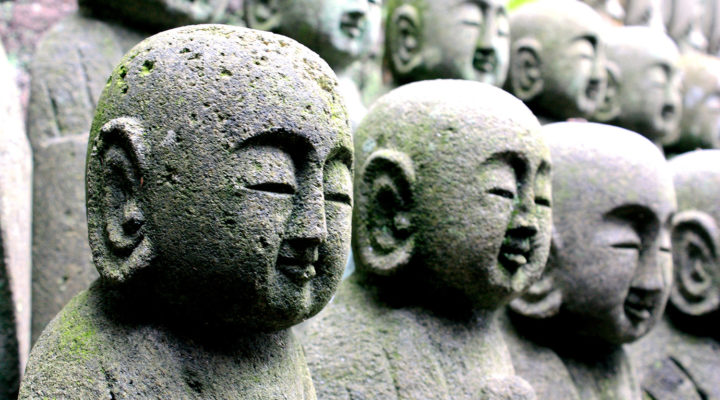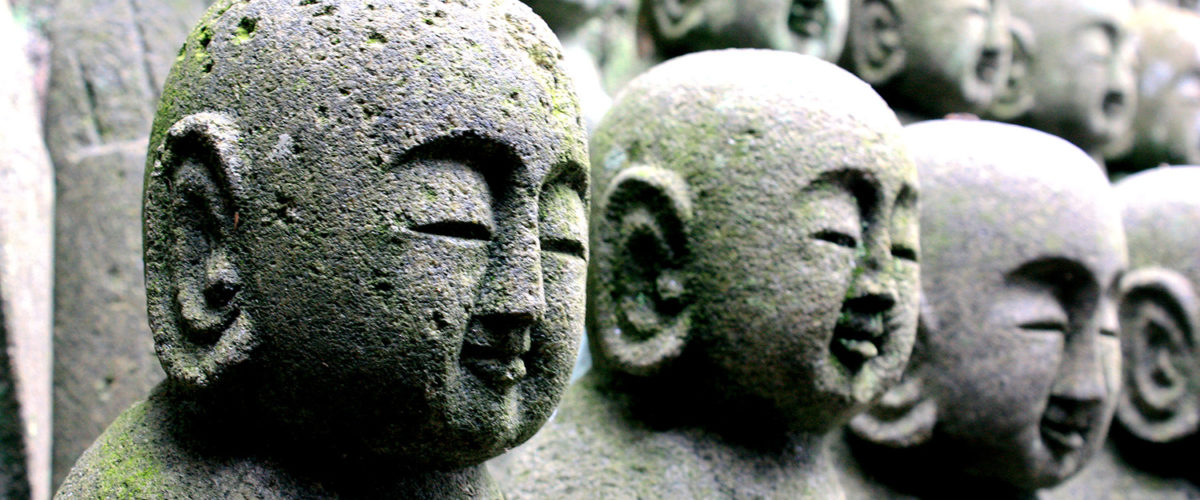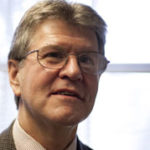Christians anxious about the troubles of the American church often look to Europe’s beautiful-but-empty cathedrals as signs of things to come.
But a scholar who studies the connection between fertility, immigration rates and religion said American Christianity is at nowhere near the same place as its European counterpart.
In fact, Japan is where the real religious decline is occurring, says Philip Jenkins, a professor of history at Baylor University’s Institute for Studies of Religion.
“If we want to see a faith in real decline … we need to look outside the bounds of Christianity altogether,” Jenkins writes in a May 5 article for The Christian Century titled “Empty Temples in Japan.”
In Japan, he says, Buddhism and Shintoism have seen huge drops in religious adherence and temples are in dire financial straits.
Demographic and social changes have prompted the abandonment of many of Japan’s 80,000 temples and shrines. Nearly half of them are expected to cease functioning by 2040.
“Few can draw the 200 or so families that are reckoned as the absolute minimum to support an active temple,” Jenkins writes.
But he cautions Americans against assuming their faith shares a similar fate. Japan has one of the lowest fertility rates and strictest immigration policies in the world — the opposite of the United States. Both trends conspire to rob Buddhist and Shinto temples of the lifeblood of religion: children and young families.
Jenkins spoke with Baptist News Global about his article and about why he doesn’t see the U.S. church in the same predicament as faith expressions in Japan or Europe.
How did you come to focus on religion in Japan?
I’ve been doing a lot of work on the relationship between fertility and faith, and how family size is connected to religious behaviors. I looked at Japan because it is so extreme — it has a very low fertility rate and very old population.
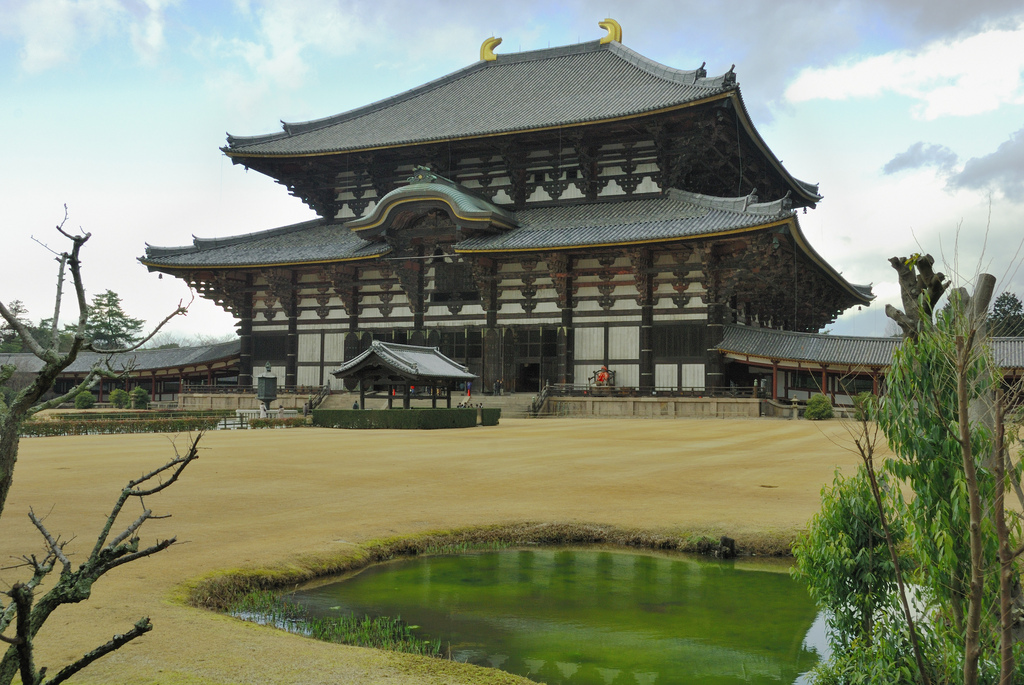
Some Buddhist temples in Japan have been converted to hotels, restaurants and coffee shops run by monks. (Photo/Richard Fisher/Creative Commons)
Just how bad is it in Japan?
Japan is famous because it has all these great temples and shrines. The problem is that most of those are in areas where there are very, very old and declining populations and no one is really prepared to support the temples. So that means religious behavior is in full decline. Fifteen percent of temples have no resident priests. You see many of them running as hotels, cafes and restaurants — run by Buddhist priests because that’s the only way they can keep the place open.
Are Shinto and Buddhist leaders trying to turn the situation around?
There are some attempts to reach out more to the public, to put Buddhism in a more contemporary form, to use social media. But it’s not that people have decided Buddhism is a bad thing; they have just lost interest in religion generally.
Was there a moment when it all went wrong — or is the decline the inevitable result of social and cultural changes?
In some ways what you get in Japan is the same as you see in Europe. People get richer and are more focused on consumer goods than their own self-fulfillment.
You compare the decline of Buddhism in Japan with that of Catholicism in Europe. What lessons are there for Christianity in the United States?
The big variable I’m looking at is fertility and immigration. In the U.S., immigration brings in young people and the nation has the highest fertility rate of any advanced nation. … Another big difference between the U.S. and Europe is most of its migration is Christian. You get some Muslims and Hindus and Buddhists, but Nigerians and Mexicans and others are mostly Christian. And 75 percent of Arab Americans are Christians.
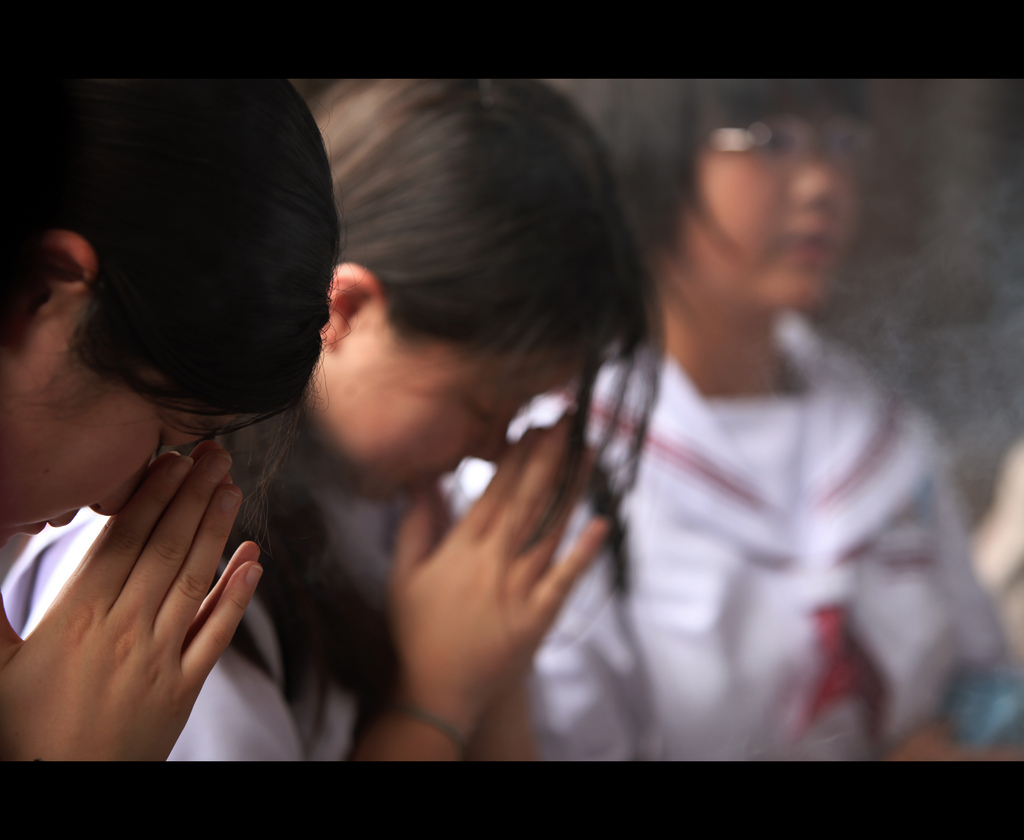
Buddhists pray in a temple in Japan. Demographic shifts have devastated Buddhist and Shinto temples in the nation. (Photo/Evan Blaser/Creative Commons)
What about the nones — are they not a significant problem for faith in America?
If you look at surveys of the nones, what they say is that they still read the Bible, they still pray. … A lot of the nones are very religious, but they just reject religious labels. … A lot of the nones still participate in religious institutions.
So you don’t really see any parallels between Japan or Europe and the United States?
There is a night-and-day difference between the United States and the other parts of the advanced world. When a church goes out of business in Europe, it will reopen as a condo or warehouse — or maybe a mosque. In the U.S., it will reopen as another church — probably Korean or another nationality.

